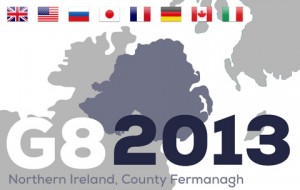The elevator pitch is one of the essential tools of the American entrepreneur. Make your case in about 30 seconds and hope that you can hook your harried but important audience of one.
This approach is something President Obama should keep in mind this week as he meets with his fellow world leaders at the G8 summit in Ireland. He arrives prepared to play a complicated mix of offense and defense with his fellow world leaders.
From deflecting Russia as the U.S. ramps up support for Syrian rebels to defending the NSA’s insatiable digital appetite to an upset Germany, the temptation is to spend energy and face time on these front-page issues.
Yet there are strategic goals that must not be overlooked, particularly improving American competitiveness. Summits such as this one offer a rare moment to personally commit to long-term policy objectives that otherwise are lost amid the pressing issues of the day.
 Two particular areas that will greatly improve American competitiveness should be a priority for President Obama at the summit.
Two particular areas that will greatly improve American competitiveness should be a priority for President Obama at the summit.
The first is a trade deal between the U.S. and the European Union. Top European officials consider it a “game changer” and are already pushing forward toward making progress and are making the case to their voters.
“An EU-US trade deal, for example, could be worth £10 billion to the UK alone – in the end that’s not some abstract statistic, these trade deals matter, because they mean more jobs, more choice for consumers and lower prices,” said Prime Minister David Cameron in a statement a press conference.
It is up to President Obama to meet this level of enthusiasm with his own leadership and with such a clear case for the benefits. Meeting in July in Washington for the first round of such talks offers a starting point, but it will take far more than procedure to secure the support of Congress and the American public. Nothing can be seen as a sure thing by the White House this summer. There are so many other hot-button issues key to American competitiveness, including immigration reform and the federal deficit, needing action.
A similar level of leadership is needed on cleaning up the U.S. corporate tax code so that the practice of offshoring foreign earnings by U.S. multinationals can wind down. This, of course, is a global issue, for corporations of every nationality and the G8 is the right place for President Obama to weigh in personally on the issue with his peers.
President Obama, however, will not have much time given the other issues at hand. With some leaders, it may be during an interlude between meetings or over drinks after hours. But that should not dissuade him from making his best pitch for improving American competitiveness.


